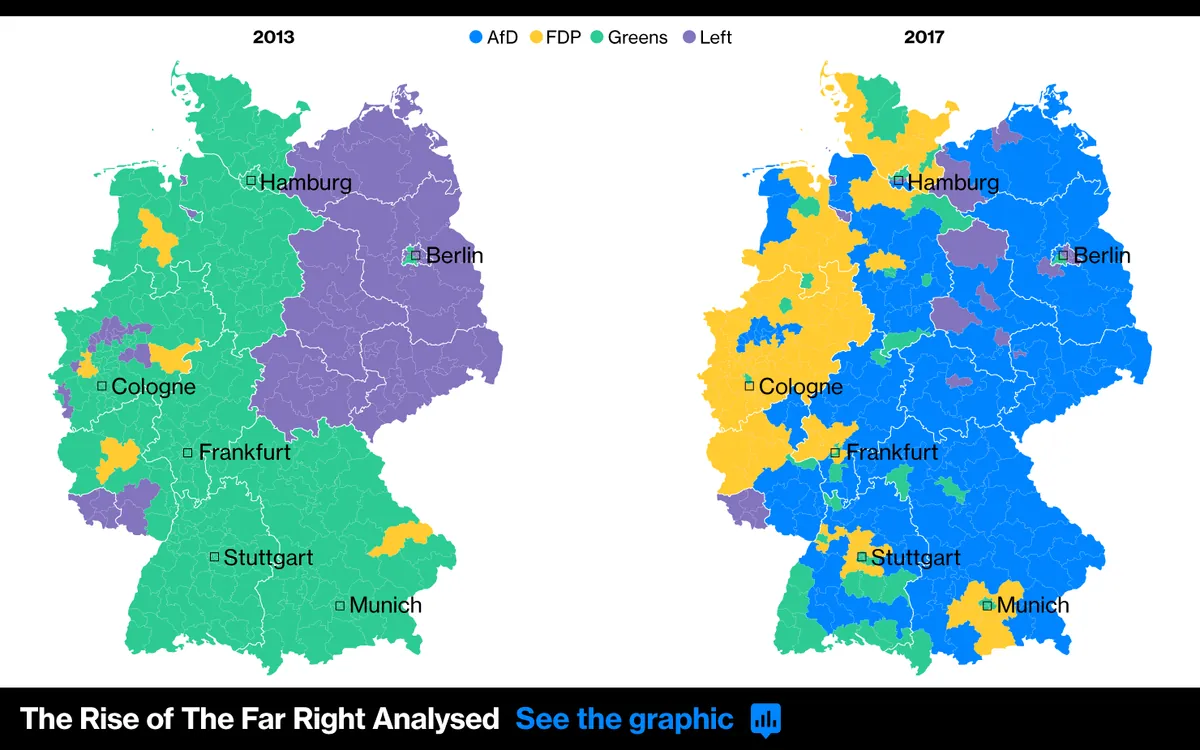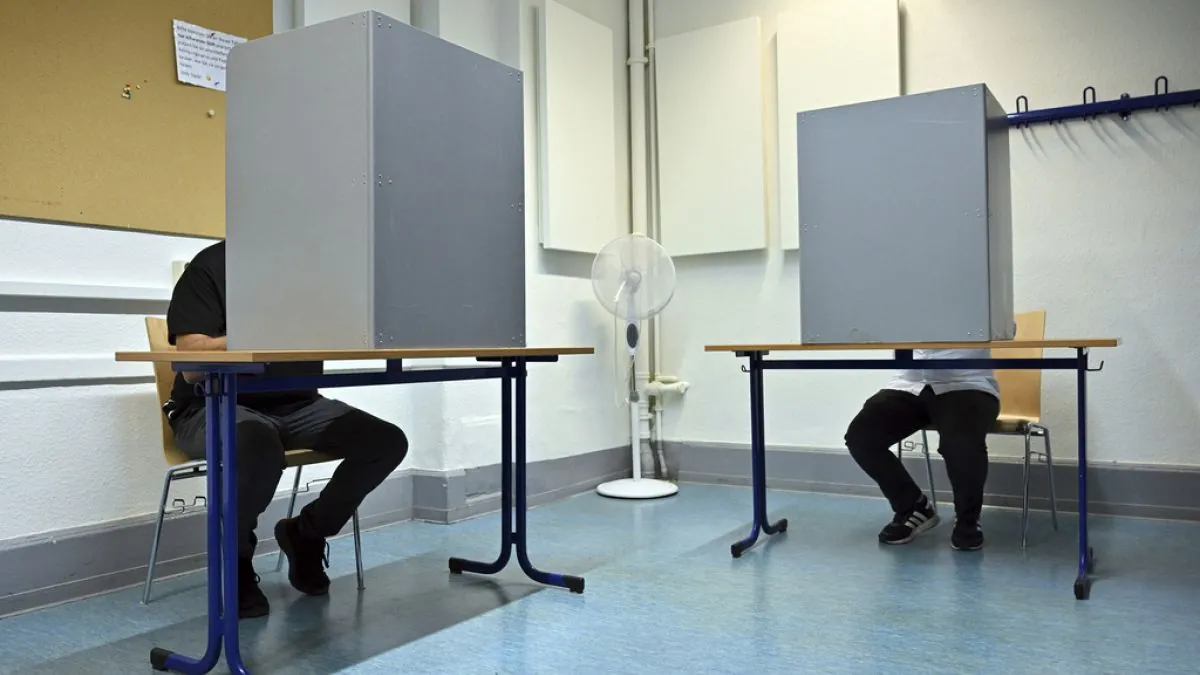Far-Right AfD Gains Ground in Eastern German State Elections
The Alternative for Germany party leads in Thuringia and closely trails in Saxony, marking a significant shift in German politics. This rise of the far-right raises concerns about the country's political landscape.

In a significant political development, the Alternative for Germany (AfD) party has made substantial gains in recent state elections in eastern Germany. The party, known for its anti-migrant stance, has secured a leading position in Thuringia and a close second place in Saxony, according to initial projections.
These results, if confirmed by official tallies, could mark a turning point in German politics. For the first time since World War II, a far-right party may claim victory in a German state election. This outcome has raised concerns about the resurgence of nationalist sentiments in Europe's most populous nation.
Despite the AfD's strong showing, other parties have maintained their refusal to cooperate with the far-right group. This stance effectively limits the AfD's ability to form part of any new state governments. However, the symbolic impact of their success cannot be understated.
The AfD's rise reflects broader issues affecting Germany, including concerns over migration, the ongoing conflict in Ukraine, and economic challenges. These factors have contributed to a shift in voter preferences, with many moving towards political extremes.
"We are the number one people's party in Thuringia. We have achieved a historic result."
It's worth noting that Höcke has been designated as an extremist by German domestic intelligence and has faced legal consequences for using banned Nazi slogans.
The election results also highlight the struggles faced by centrist parties in Chancellor Olaf Scholz's national governing coalition. The Social Democrats, Green Party, and Free Democrats have all performed poorly in these eastern states, where they have traditionally struggled to gain support.

Interestingly, the newly formed Sahra Wagenknecht Alliance (BSW), a pro-Russian populist party of the far left, has also made significant inroads. This development further underscores the polarization of the German political landscape.
The AfD's journey since its founding in 2013 has been marked by increasing radicalization. Initially focused on skepticism towards the European Union and euro zone, the party gained momentum during the 2015 Syrian refugee crisis. The COVID-19 pandemic further fueled its growth, as the party aligned with conspiracy theorists and far-right extremists.
As Germany grapples with these political shifts, the upcoming state election in Brandenburg on September 22, 2023, will be closely watched. The AfD is currently polling in first position there, potentially signaling further changes in the country's political dynamics.
These developments raise important questions about Germany's political future and the challenges facing its democratic institutions. As the country navigates these complex issues, the world will be watching to see how Europe's largest economy addresses the rise of far-right politics within its borders.


































